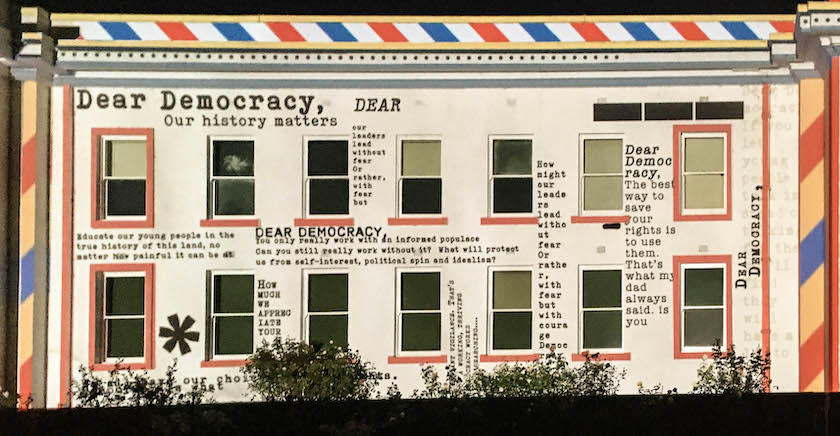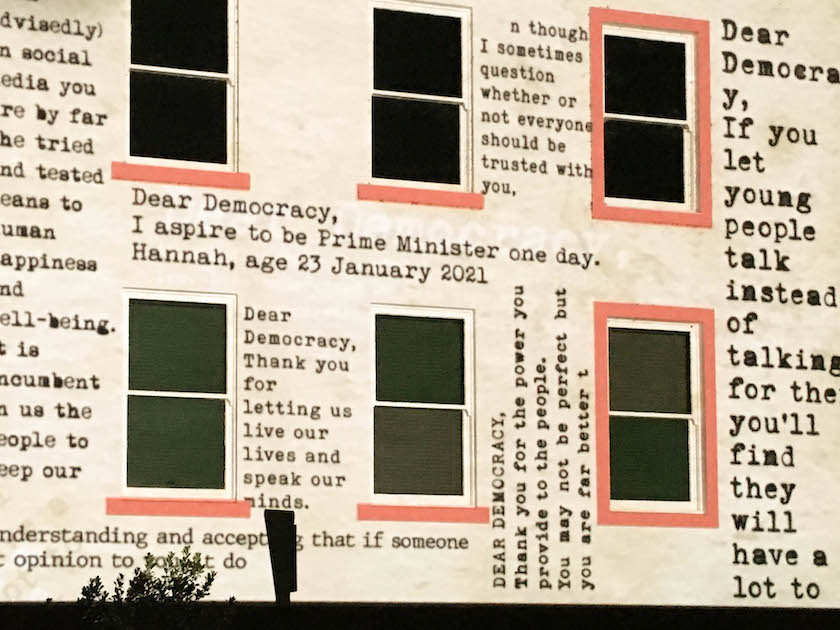Australian politics
Labor discovers the joy of the pork barrel
Writing in The Sydney Morning Herald – Labor spending blitz appears to favour marginal electorates – David Crowe has collated many of Labor’s small pre-election promises of projects in specific regions, that together come to $750 million. Projects identified include a manufacturing hub, grants to community sports organizations, recreation reserves, and upgrades to local roads.
Labor promises that, if elected, all projects will have to be assessed by the Department of Infrastructure to ensure they have merit. (A weakness in our winner-take-all political conventions is that the analytical resources of the public service are available only to executive government.) On that score they stand to be more responsible with public money than the Coalition has been, but that’s a pretty low hurdle to clear. But in following the Coalition’s example, Labor has missed an opportunity to dispel the notion that all politicians are the same – opportunistic and self-interested – and has given an electoral opportunity to independents.
Of more concern to those who are interested in good government is that Labor, like the Coalition, is bringing the federal government into projects that would be far better left to adequately-funded state and local governments. Why should a federal government be involved in upgrading a football oval in Marrickville or a community reserve in eastern Adelaide?
Labor’s projects are probably all justifiable in terms of community needs. The problem is that political discretion generally results in projects with higher benefits being bypassed in favour of projects with lower benefits.
Although Trade Minister Simon Birmingham has criticized Labor for its hypocrisy – a fair call – the Coalition probably won’t be making too much noise about Labor’s pork barrelling. Yielding to National Party pressure, the Coalition has just announced a $500 million dam west of Mackay to support expansion of the coal industry, with provisions to bypass normal processes of environmental approval. There would be net benefits from Labor’s proposals, but not as high as they would be under reformed federal arrangements. By contrast net harm and the waste of an expensive stranded asset would come from infrastructure for the coal industry.
Is Australia a responsible international citizen?
On the ABC’s Big Ideas on Wednesday night, in an hour-long interview with Paul Barclay, Gareth Evans spoke about what it means for a country to be a good international citizen.
Evans covers some of the important aspects of good international citizenship in an 18-minute session – Is Australia a good international citizen? – on last weekend’s Saturday Extra with Geraldine Doogue.
The first 7 minutes of that session are about possible ways to resolve the Ukraine conflict. By now much of what Evans suggests, such as Austrian-style neutrality for Ukraine, has become mainstream.
In the rest of the interview he rejects the commonly-held view that there is some binary choice between idealism and realism in foreign policy, and that good international citizenship is simply some cuddly idea about Australians being able to feel good about their country.
There is no trade-off between pursuing a morally-justified foreign policy and attending to our own hard-headed economic and security interests. Evans makes three strong points in defence of good international citizenship: reputation and soft power bring commercial returns; reciprocity brings benefits to all sides seeking to solve shared problems; and good international citizens are able to mobilize resources to attend to worldwide problems, such as climate change and nuclear proliferation. Unfortunately, over recent years, Australia’s reputational capital accumulated over many years has been spent down.
There are two aspects of his longer interview not covered in his Saturday Extra session.
One relates to foreign aid. Australia’s contribution to foreign aid has been falling over many years and as a proportion of gross national interest it is now at an all-time low. Even during the pandemic, in spite of the clear intermeshing of self-interest and altruism, we have made only small contributions to the WHO Covax program. He mentions research that shows Australians over-estimate what we spend on foreign aid: when we are informed about how paltry our contribution really is we are willing to spend much more.
The other relates to our policy towards refugees, particularly the bizarre and cruel distinction we make between asylum-seekers who come by air and those who come by boat. He also reminds us of the Greens’ role in 2011 in blocking the government’s plan for a refugee arrangement with Malaysia.
Evans’ ideas about good international citizenship and his “decency agenda” are in his book Good International Citizenship: the case for decency.
Dear democracy…
Below are some of the messages provided by visitors to the Museum of Democracy, displayed on Old Parliament House during Canberra’s Enlighten Festival.




Newspoll – no movement
The fourth consecutive Newspoll has Labor’s primary vote on 41 percent. The Coalition’s support is at 35 percent, up from 34 percent a couple of polls back, but that movement is within the margin of error. To provide a point of reference, at the 2019 election Labor’s vote was 33.3 percent and the Coalition’s was 41.4 percent. Morrison’s approval rating has slipped further and he and Albanese are level-pegging on the preferred prime minister contest.
Writing in The Conversation – Albanese level with Morrison as better PM in Newspoll as Labor maintains big lead – Adrian Beaumont provides some dissection of this and other polls. He also reports on which party is seen to be better placed to handle supposed security threats from Russia and China. Among those who consider there to be a difference (about 40 percent don’t think there’s a difference between the parties), the Coalition is ahead by a few points.
(Few with any knowledge of or experience in foreign relations, who have observed Morrison’s and Payne’s ham-fisted approaches to foreign relations, would agree with this ranking.)